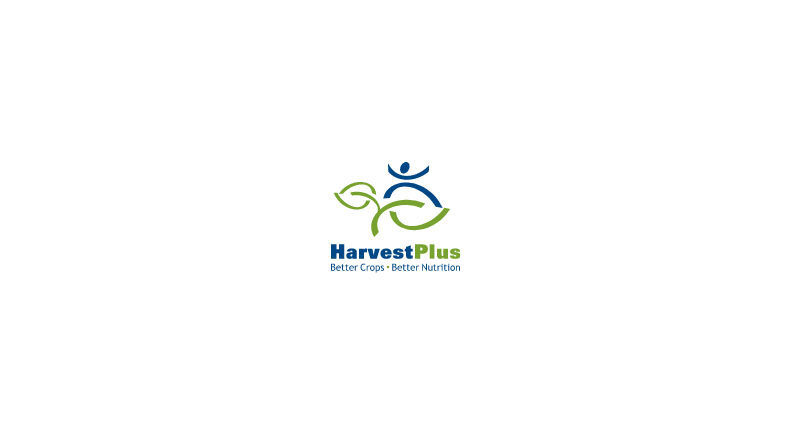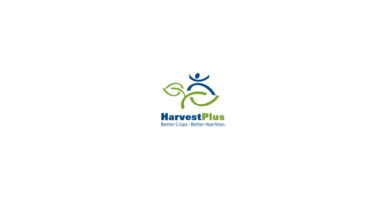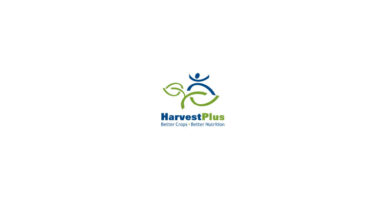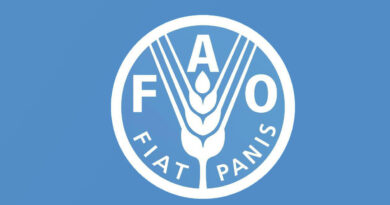For Ugandan Couple, Biofortified Sweet Potato Business Brings Livelihood Boost
09 April 2022, Uganda: In Agwata sub-county of Uganda’s Dokolo district, visitors to the home of Doreen Akullo and Peter Ogwai are greeted by a rare sight in the local area: a concrete house. Doreen and Peter’s proceeds from their business selling vitamin A orange sweet potato (OSP) roots and vines contributed siginificantly towards building it.
The couple is all praises for the biofortified crop that has helped their family escape poverty and malnutrition. They have also been able to buy a bull for ploughing and a couple of goats from the proceeds. The family generates additional income from selling other agricultural produce such as conventional maize and cassava.
Doreen learned about OSP during a sensitization meeting in 2020 held by World Vision, a HarvestPlus partner in the area. Meeting participants were asked to form groups and received trainings in nutrition and agronomy of OSP. This was under the USAID Meals for Nutrition Biofortified Solutions in Uganda (MENU) project which was designed to deliver biofortified crops to local communities in Uganda.
After these trainings, each farmer received a promotional pack of vines, which Doreen and her husband planted on a quarter acre of land. The seasonal conditions were good and the yield was high; Doreen has been feeding her family OSP ever since. “My family is no longer as sickly as before,” she said with a smile. She expanded her garden and they sell surplus roots at a local trading center.
Doreen and Peter have since become secondary vine multipliers and sold over 500 bags of vines at USD 2.70 each to several buyers in 2021, including fellow farmers and local NGOs. They have been expanding their production, and during the 2021 season they planted vines on over 1 acre. For 2022, they have another 1-acre land available for vines.
“My husband and I hope to expand our vine multiplication efforts to support the whole district and also hope to get trainings in value addition in order to be able to make snacks from OSP roots to boost our incomes,” said Doreen.
About 10 percent of children in Uganda are vitamin-A deficient, which can lead to night blindness and a higher risk of infections; vitamin A deficiency can also impair fetal development. Meanwhile, according to the 2016 Uganda Demographic and Health Survey, one out of every two Ugandan children are anemic, which is often caused by a lack of iron in the diet. With over half its population under the age of 18, Uganda must pay close attention to nutrition. HarvestPlus is promoting biofortification as a highly cost-effective and a sustainable way of dealing with micronutrient malnutrition.
The biofortified crops currently promoted in Uganda right now are OSP and iron beans. When consumed regularly, iron beans can provide up to 80 percent of daily iron needs, while regular consumption of vitamin A OSP can provide up to 100 percent of daily vitamin A needs.
Scientific research has shown that vitamin A OSP significantly improves vitamin A status among children and provided health outcomes such as reduced prevalence and duration of diarrhea in children. Meanwhile, consumption of iron beans not only reduces iron deficiency but also improves cognitive performance and physical functions. Vitamin A maize is awaiting release as the development phase has concluded. HarvestPlus is canvassing for support from other stakeholders and more government departments to promote biofortified crops.
By 2021, more than 965,000 farming households were growing and consuming iron beans while more than 1.2 million farming households were growing and consuming vitamin A OSP in Uganda. This was made possible through thecurrent USAID Meals for Nutrition Biofortified Solutions in Uganda (MENU) and the preceding Developing and Delivering Biofortified Crops (DDBC) project, both of which have been funded by the United States Agency for International Development (USAID) under the United States Feed the Future Initiative.















